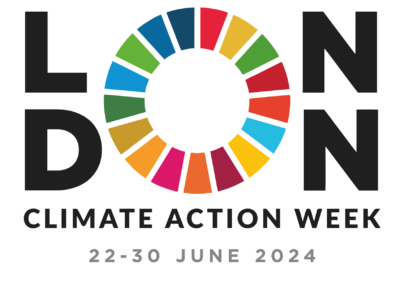The ocean takes up heat and carbon, reducing the adverse effects of climate change. However, those benefits also have costs: the ocean is warming, the rate of sea level rise is increasing, and the oceal is acidifying.
This briefing explores mitigation strategies and adaptation actions both for
and by the ocean, as well as the importance of supporting better inclusion of the ocean in international climate change negotiations.
Image credit: ‘Offshore wind farms as backdrop to enjoyment of the sea’ by K. Boot, Plymouth Marine Laboratory. Image used with permission.


